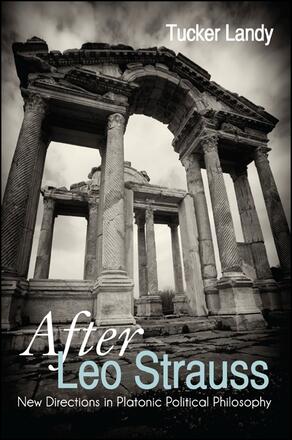
After Leo Strauss
New Directions in Platonic Political Philosophy
Alternative formats available from:
Proposes a post-Straussian reading of Plato to advance a reconciliation of ancient and modern theories of natural right.
Description
Few thinkers of the twentieth century studied the fundamental questions of ethics and politics, or penetrated further into the philosophical sources of the moral relativism of our times, more deeply than Leo Strauss. After Leo Strauss is not yet another attempt to explicate, critique, or defend Strauss. Instead, it encourages us to look in new directions, and to escape certain aspects of Strauss's powerful influence, in order to revisit classic texts and make our own judgments about what those texts might mean. Tucker Landy proposes a post-Straussian reading of the Platonic dialogues that is non-esoteric yet respectful of their subtle dramatic-pedagogic form and urges us, in a spirit of Socratic humility, to reexamine ancient and modern theories of natural right to seek possible grounds for reconciliation between them. Landy puts forth a Socratic theory of democratic liberalism as an example of such reconciliation.
Tucker Landy is Associate Professor of Liberal Studies at Kentucky State University.
Reviews
"This book is a breath of fresh air for people like me, who were influenced by Strauss early in their philosophic careers but who refuse to dismiss metaphysics and cosmology, who are wary of the potentially narrowing effects of 'political philosophy,' and who are open, in their philosophical eros, to the possible truth of revelation and the wisdom of the poets. Tucker Landy gives us a new beginning—a Socrates made young and beautiful. " — Peter Kalkavage, author of The Logic of Desire: An Introduction to Hegel's Phenomenology of Spirit